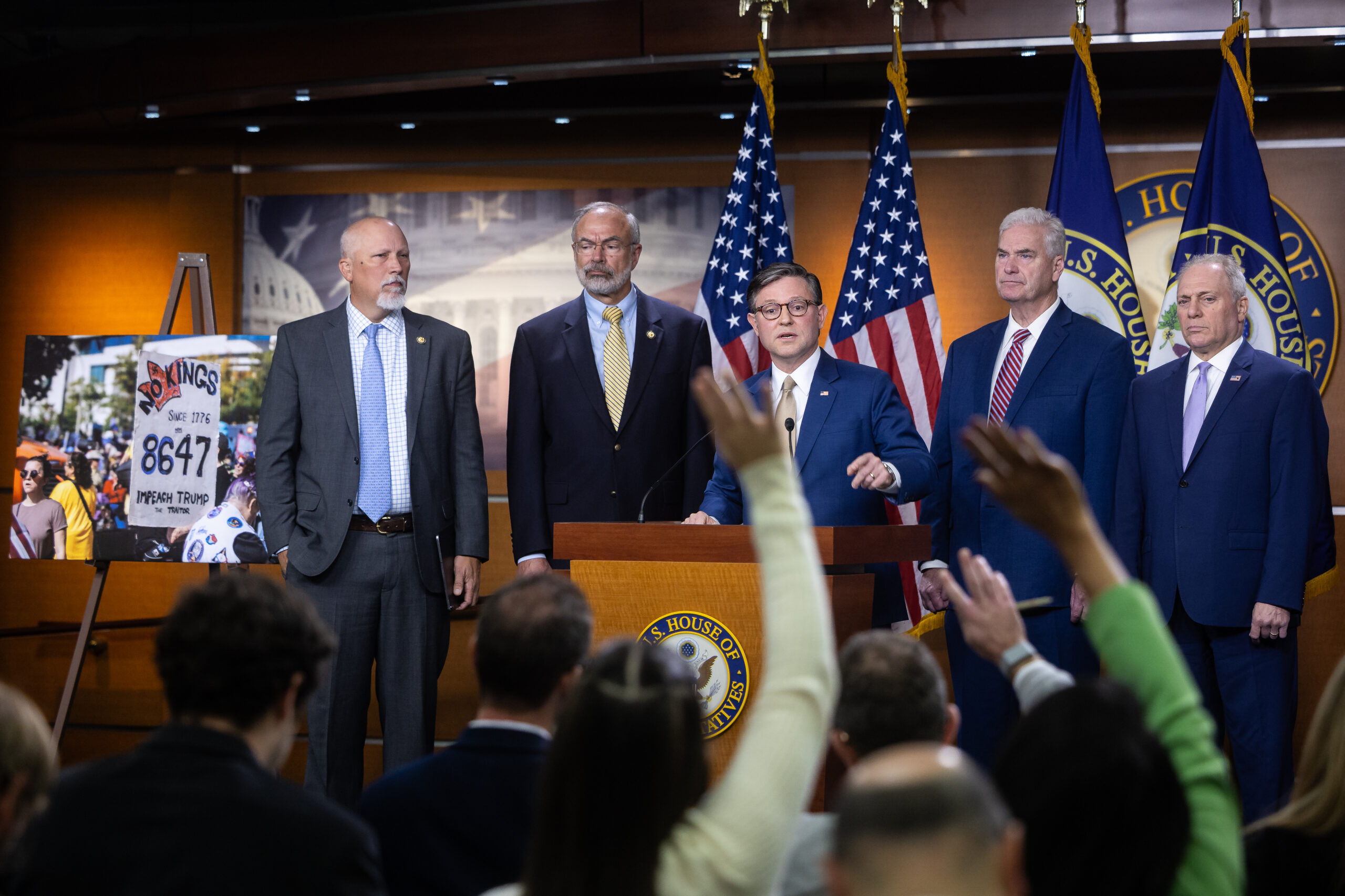Politics
GOP Leaders Negotiate Obamacare Subsidy Extension Ahead of Deadline

Republican leaders are engaging in discussions to potentially extend crucial insurance subsidies associated with the Affordable Care Act, commonly known as Obamacare. With a deadline looming at the end of the year, these negotiations center on how to structure and advance this extension before the critical date of December 31, 2023.
The urgency of these talks is underscored by the fact that approximately 13 million Americans benefit from these subsidies, which help lower health insurance costs for many individuals and families. Without an extension, these subsidies are set to expire, potentially leaving millions without affordable coverage. GOP leaders are now considering ways to garner support from both moderate and hard-line factions within the party.
Strategic Negotiations Amid Party Dynamics
The discussions come at a time when the Republican Party is navigating its internal divisions regarding health care policy. While some hard-liners have been skeptical of any cooperation with Democrats, there seems to be a growing willingness to discuss health care issues, particularly as the party aims to present a unified front ahead of the next election cycle.
In conversations led by key figures in Congress, including Senate Minority Leader Mitch McConnell and House Speaker Kevin McCarthy, the focus has shifted towards finding common ground. The goal is to formulate a plan that would not only extend the subsidies but also address concerns related to the rising costs of healthcare across the nation.
Economic analysts emphasize that the continuation of these subsidies could significantly impact the overall economy. According to a recent report from the Congressional Budget Office, extending these subsidies could cost the government an estimated $20 billion annually, but the long-term benefits of a healthier population may offset this expenditure.
Potential Outcomes and Implications
As negotiations progress, various scenarios are being considered. One possibility includes a temporary extension that would allow for further discussions on comprehensive health care reforms in the future. Another option may involve crafting a bipartisan bill that addresses both subsidy extensions and broader health care system changes.
The implications of these discussions extend beyond party lines, affecting millions of Americans who rely on these subsidies for their health insurance. With the deadline fast approaching, the pressure is mounting on GOP leaders to reach a consensus that prioritizes the needs of constituents while navigating the complex political landscape.
With the future of health care subsidies hanging in the balance, all eyes are on Congress as they work toward a resolution that could shape the landscape of American health care for years to come. As the clock ticks down toward the end of December, the need for decisive action has never been more critical.
-

 Business1 week ago
Business1 week agoIconic Sand Dollar Social Club Listed for $3 Million in Folly Beach
-

 Politics1 week ago
Politics1 week agoAfghan Refugee Detained by ICE After Asylum Hearing in New York
-

 Health1 week ago
Health1 week agoPeptilogics Secures $78 Million to Combat Prosthetic Joint Infections
-

 Science1 week ago
Science1 week agoResearchers Achieve Fastest Genome Sequencing in Under Four Hours
-

 Health1 week ago
Health1 week agoResearcher Uncovers Zika Virus Pathway to Placenta Using Nanotubes
-

 Lifestyle1 week ago
Lifestyle1 week agoJump for Good: San Clemente Pier Fundraiser Allows Legal Leaps
-

 World1 week ago
World1 week agoUS Passport Ranks Drop Out of Top 10 for First Time Ever
-

 Science1 week ago
Science1 week agoMars Observed: Detailed Imaging Reveals Dust Avalanche Dynamics
-

 Entertainment1 week ago
Entertainment1 week agoJennifer Lopez Addresses A-Rod Split in Candid Interview
-

 Business1 week ago
Business1 week agoSan Jose High-Rise Faces Foreclosure Over $182.5 Million Loan
-

 Top Stories6 days ago
Top Stories6 days agoChicago Symphony Orchestra Dazzles with Berlioz Under Mäkelä
-

 World1 week ago
World1 week agoRegional Pilots’ Salaries Surge to Six Figures in 2025









